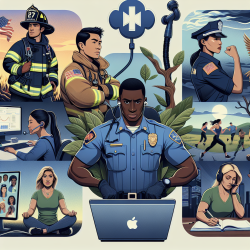As Special Education Directors, we are perpetually in pursuit of innovative solutions to meet the diverse needs of our students. In an era where technology shapes much of our educational landscape, virtual therapy emerges as a beacon of progress, offering a bridge to self-actualization for students requiring special education services. This transformative approach to therapy not only aligns with our commitment to providing equitable access to education but also opens new avenues for telepractice jobs, particularly in the realm of speech therapy telepractice.
Virtual therapy, or teletherapy, encompasses a range of services delivered online, including speech therapy, occupational therapy, and mental health counseling. This modality has seen a significant uptick in adoption, driven by its ability to offer flexible, personalized, and efficient therapeutic interventions. For special education departments navigating the complexities of staffing shortages and logistical challenges, virtual therapy presents a viable solution, ensuring that our students continue to receive the support they need, irrespective of geographical or physical barriers.
The benefits of virtual therapy extend beyond its logistical advantages. It leverages the digital proficiency of today's youth, engaging students in a medium they find familiar and accessible. This engagement is crucial in therapy, where active participation can significantly influence outcomes. Furthermore, virtual therapy provides an opportunity for real-time data collection and analysis, enabling therapists to tailor their approaches to the individual needs of each student more effectively.
However, the shift towards virtual therapy is not without its challenges. Concerns regarding the efficacy of online interventions compared to traditional face-to-face therapy persist among some educators and parents. To address these concerns, it is essential to rely on evidence-based practices and the growing body of research supporting the effectiveness of virtual therapy. Studies have shown that, for many students, teletherapy can be just as effective as in-person sessions, particularly in the realm of speech therapy telepractice, where the visual and auditory nature of the medium supports the therapeutic goals.
For schools considering the integration of virtual therapy into their special education programs, several steps can facilitate a smooth transition. First, ensuring access to the necessary technology and a reliable internet connection for both students and therapists is paramount. Training for staff, students, and parents on how to use the teletherapy platform effectively can also help alleviate any technical concerns. Moreover, establishing clear communication channels between school administrators, therapists, and families is critical to monitor progress and address any issues that may arise during the course of therapy.
The landscape of telepractice jobs is also evolving, with an increasing number of professionals seeking opportunities in virtual therapy. This shift opens new pathways for therapists who may prefer the flexibility of telepractice or reside in areas with a high demand for special education services but limited local employment options. For schools, this means access to a broader pool of qualified therapists, potentially easing the burden of therapist staffing shortages.
In conclusion, as we navigate the challenges and opportunities of special education in the 21st century, virtual therapy stands out as a promising tool in our arsenal. It embodies a shift towards more inclusive, accessible, and efficient therapeutic services. By embracing virtual therapy, we not only adapt to the changing educational landscape but also ensure that we are meeting the diverse needs of our students in the most effective way possible. As Special Education Directors, it is our duty to remain at the forefront of these advancements, advocating for and implementing solutions that pave the way for every student's self-actualization.
The journey towards integrating virtual therapy into our special education programs may be complex, but it is undoubtedly a step in the right direction. By staying informed, open-minded, and proactive, we can harness the power of technology to transform the lives of our students, one virtual session at a time.










